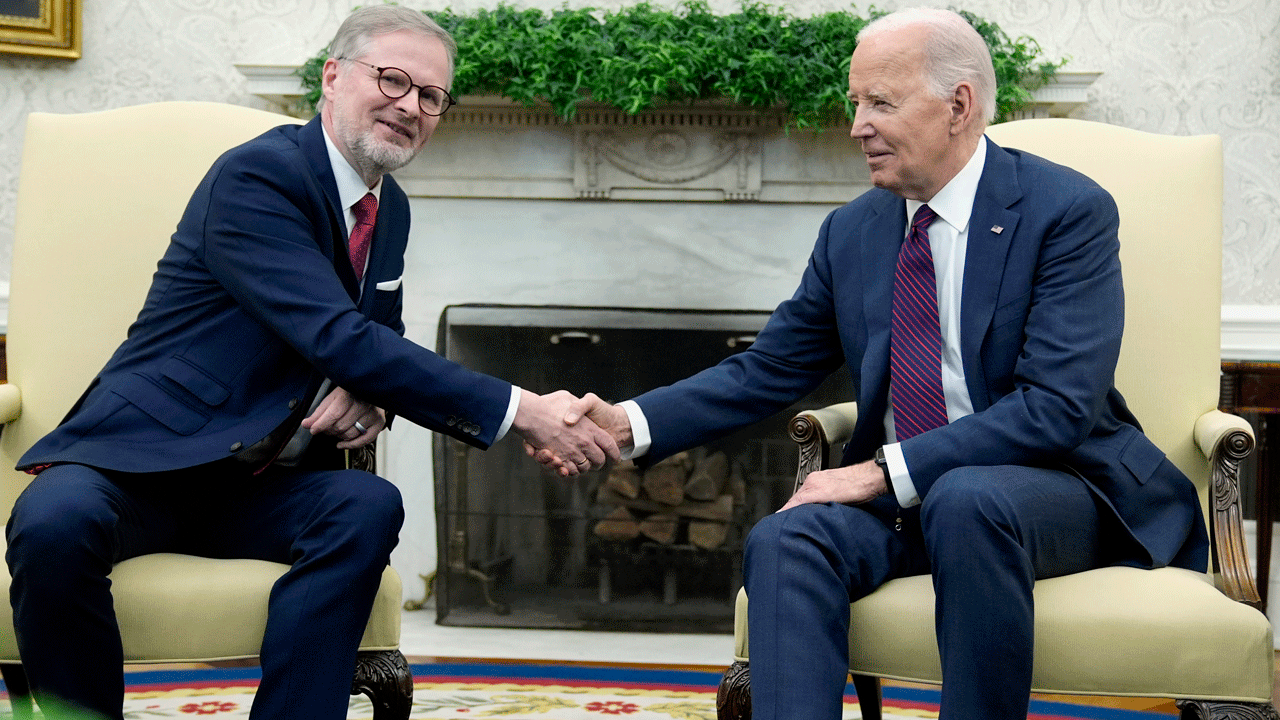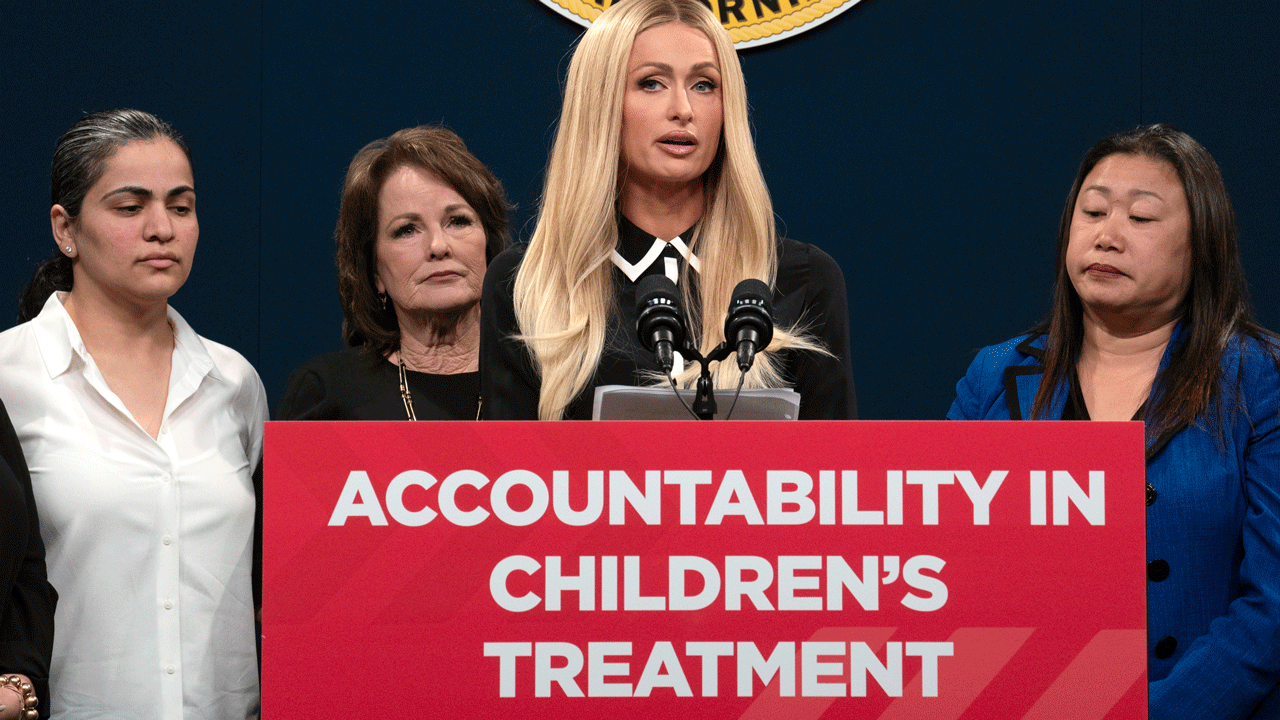Gain or drain? Debate over cost of immigration reform
William La Jeunesse reports from Los Angeles
The authors of a sweeping immigration overhaul agreed Thursday to strengthen border security provisions, while turning back efforts that would likely slow the mass legalization of illegal immigrants, as they began to fine-tune the bill in hopes of creating a product that can pass Congress.
Lawmakers began the delicate work of amending the legislation during a lengthy Senate committee meeting on Capitol Hill.
The process could take weeks as they cycle through roughly 300 amendments -- but it is a critical phase, as sponsors try to lure additional supporters to the bill.
In one concession, the bipartisan authors agreed to an amendment from Republican Sen. Charles Grassley to require that new border security standards in the bill must apply to the entire southern border, not just "high-risk" sectors with the most crossings as the bill now says.
But the bill's authors stuck together to defeat a separate Grassley amendment that would have barred anyone from seeking citizenship until the U.S.-Mexico border had been secured for six months. Supporters of the bill charged that the real effect of that provision would have been to delay citizenship indefinitely for the estimated 11 million people living here illegally.
The fate of the immigration bill -- which would be the biggest overhaul since the 1980s -- remains unclear. While the effort has the support of prominent Republicans like Florida Sen. Marco Rubio, other powerful Republicans have spoken out against it.
Sen. Ted Cruz, R-Texas, in a testy exchange, claimed the bill has no "teeth" when it comes to border enforcement and warned that the current version would not pass.
Grassley claimed it merely repeats the mistakes of the past.
"It falls short of what I want to see in a strong immigration reform bill, so you will hear me say many times that we shouldn't make the same mistakes that we made in 1986," the last time Congress passed a major immigration overhaul bill, Grassley said. "You'll hear me say many times that we ought to move ahead with a bill that does it right this time."
Supporters of the bill countered that the legislation represents the country's best hope to change the immigration system and a chance to break through the partisanship that's riven Congress and the country. They pleaded with opponents and senators who might be wavering to give the bill a chance and try to improve it -- not just look to kill it.
"We have come up with a fair bill where no one gets everything they want, but at the end of the day, it will mean dramatic improvement for the American economy, the American people, and will make our immigration policy much more in sync with what is good for jobs and America," said Sen. Chuck Schumer, D-N.Y., one of the bill's eight authors.
The bill would toughen border security, overhaul legal immigration to allow tens of thousands of new high- and low-skilled workers into the country, require all employers to check their workers' immigration status and create a 13-year path to citizenship for the millions already here.
The hearing room where the senators met was packed with lobbyists and immigration activists, some of whom stood with their hands clasped in prayer before the proceedings began Thursday.
The vote on the Grassley amendment requiring six-month control of the border before unauthorized immigrants could begin to legalize their status was likely the first of several in which the Republican authors sided with committee Democrats to vote down amendments from their own side. Schumer and Sen. Dick Durbin, D-Ill., also are expected to lend their votes to the Republican side to defeat Democratic amendments that could improve the bill for immigrant families but cost Republican support.
Although the bill allows citizenship to go forward only after certain border security goals have been met, those "triggers" haven't proven convincing enough for many GOP lawmakers, and even one of the bill's authors, Rubio, has said border measures need to be stronger. Although Rubio does not sit on the Judiciary Committee, he has pushed for some changes to be accepted, and the authors of the bill who do sit on the committee were going along with some of them Thursday.
The committee also agreed to Grassley amendments to require more auditing of money collected under the bill, and to an amendment by Sen. John Cornyn, R-Texas, to add certain forms of trafficking in persons to a the list of violent crimes that must be reported by the FBI's Uniform Crime Reporting Program.
An amendment by Sen. Mike Lee, R-Utah, to give Congress a bigger role in signing off on border security steps in the bill was defeated, again by a 12-6 vote with Republican Sens. Jeff Flake and Lindsey Graham joining the Democrats on the panel.
Democrats have the votes to ensure the bill passes the Judiciary Committee, but from its future is less clear, especially in the House. Speaker John Boehner, R-Ohio, who's been cautious in his public comments on how to proceed on immigration, promised Thursday that the House would act.
"I just want to say this: the House is going to work its will on immigration reform," Boehner said at a news conference. "This is an issue that has been around far too long and needs to be dealt with. And I intend to see that it is dealt with."
The Associated Press contributed to this report.





